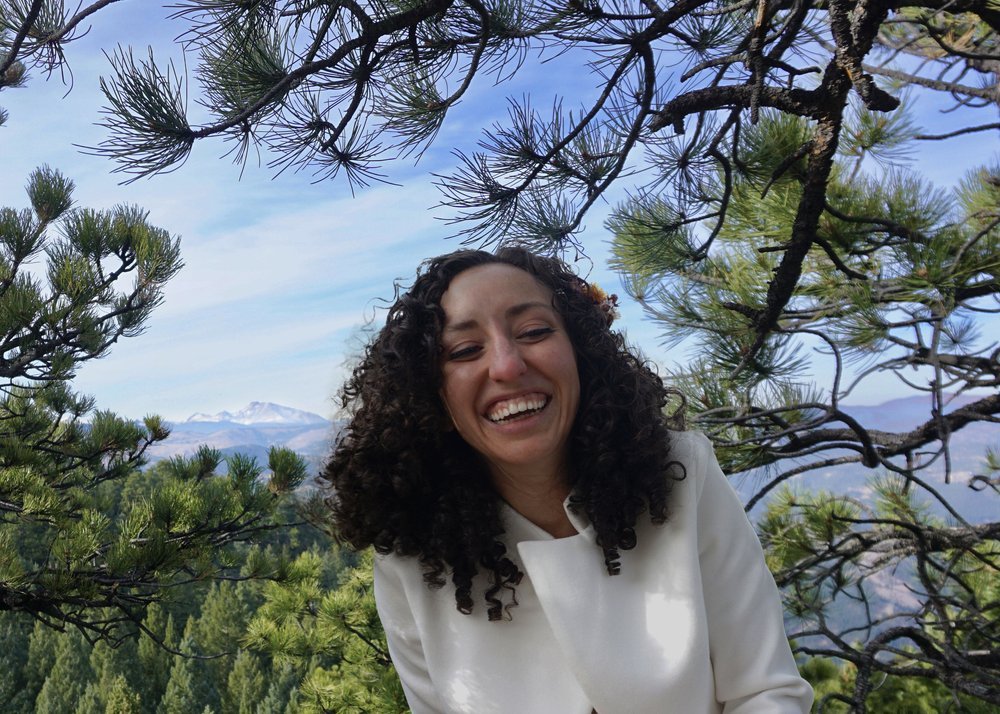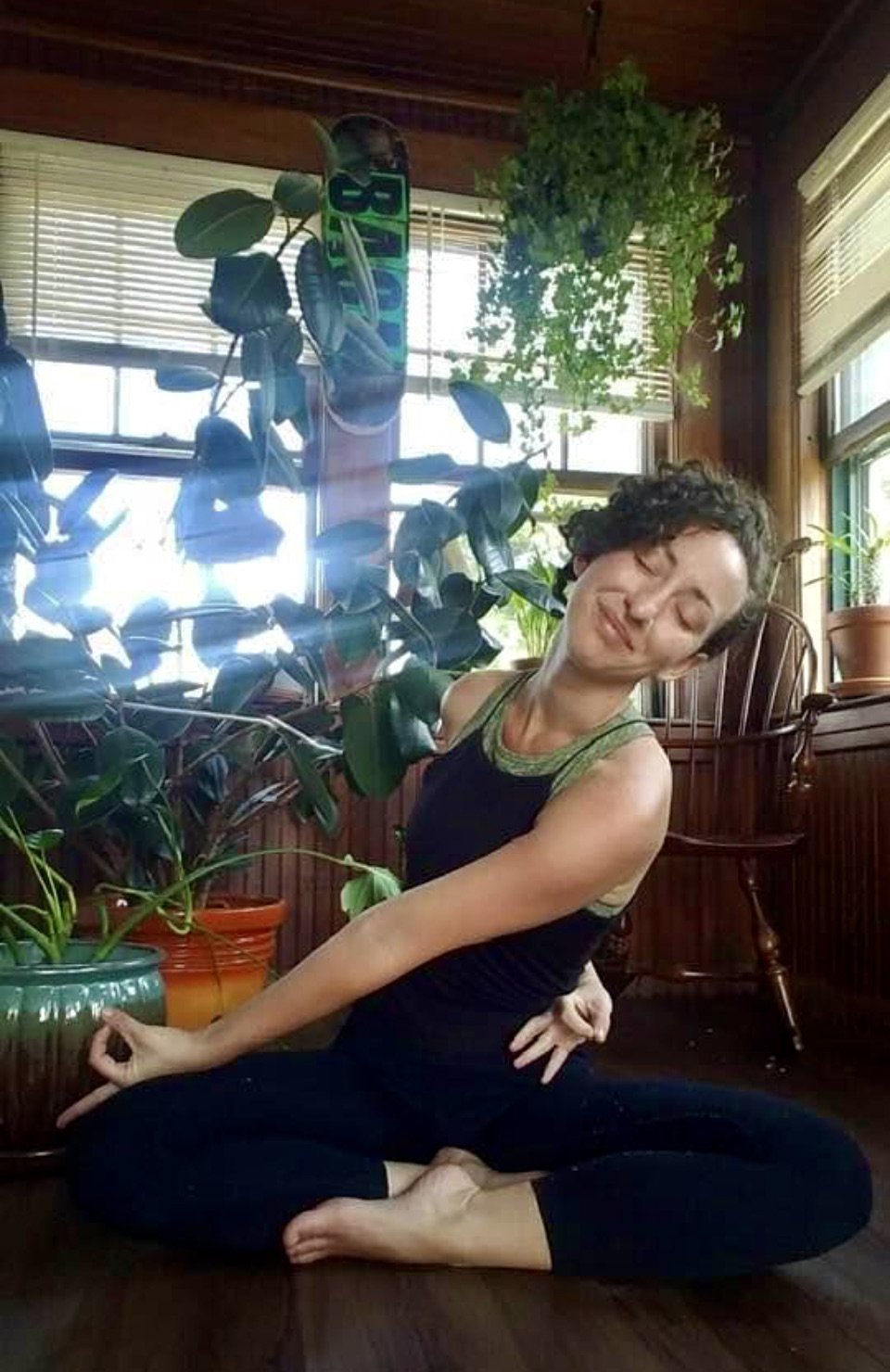Teacher Spotlight: Katie Fortier Acerbi
Meet Katie, the newest member of our collective!
Do you remember your first yoga class? What was it like? Why did you enroll?
I was in college and going to the gym semi-regularly for generic exercise and stress management. I had always been curious about yoga’s role in these pursuits and so when my French professor started offering free classes in an unused event hall, I tried it out. It was way more fun than the rowing machines, and the subtle philosophical talk suited me more than the gym music and preconceived attitudes. I immediately noticed an “afterglow,” I always left feeling really good, physically and mentally. I went back every week until graduation, preaching to all my friends that they just had to try it too.
Are there any preconceived notions you had about yoga that changed over time?
Years of attending classes, teacher training, and teaching classes, have given me so much knowledge and felt experience that has little-by-little expanded my limited idea of yoga as exercise or stress management into a deep embodiment of sensation, practiced philosophy, and way of life.
What have you gained from your yoga practice?
My yoga practice is my spiritual practice, embodiment ritual, and a touch tree that allows me to come back to myself, and notice how I’m treating my body, mind, and spirit, and from there, how I’m treating those around me.
Why did you want to become a teacher?
I’m a trained art teacher and early childhood educator, and so I kind of just think in that way. I love to learn and appease my natural curiosity. I see teaching as a privileged opportunity to share learned knowledge and personal experience in a way that makes it feel very real to me.
How would you describe your teaching style?
My training is in Kripalu Yoga and Kripalu Integrative Yoga Therapy, so I definitely come to my teaching with themes like Self Compassion, Alignment, and Mindful Embodiment. My personal preference is something like “vinyasa slow,” super smooth transitions from one pose to another, and ample time to just notice.
How do you want a student to feel after your class?
Like I did when I left those first yoga classes in college: Like I could breathe more freely and see more clearly, connect more deeply, and with more curiosity.
How does yoga inform your activism?
Ultimately, yoga is a means for liberation. And there is no liberation for me, unless you too, are liberated.
One of my favorite yoga-as-activism practices is metta, or loving-kindness, meditation:
May I/you be protected and safe.
May I/you be happy and at ease.
May I/you be healthy and strong.
May I/you care for myself/yourself wisely.
May I/you be at peace.
First, send the affirmation to yourself, then someone you love, then someone you have difficulty with, then to all beings everywhere.



